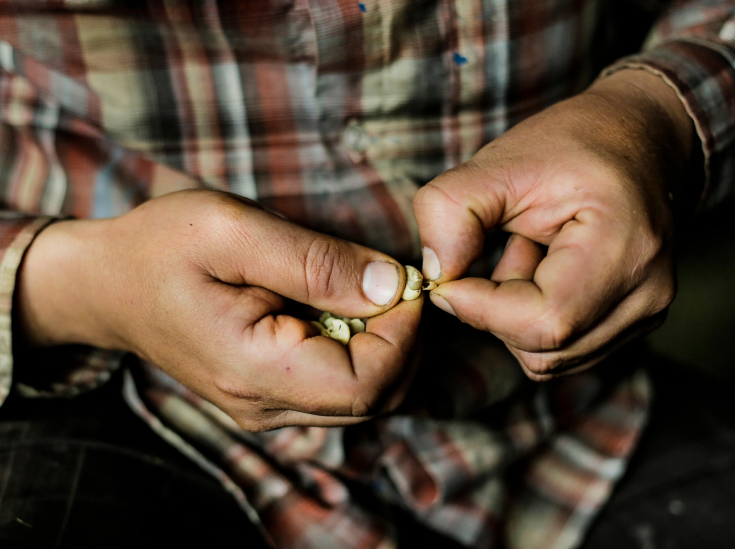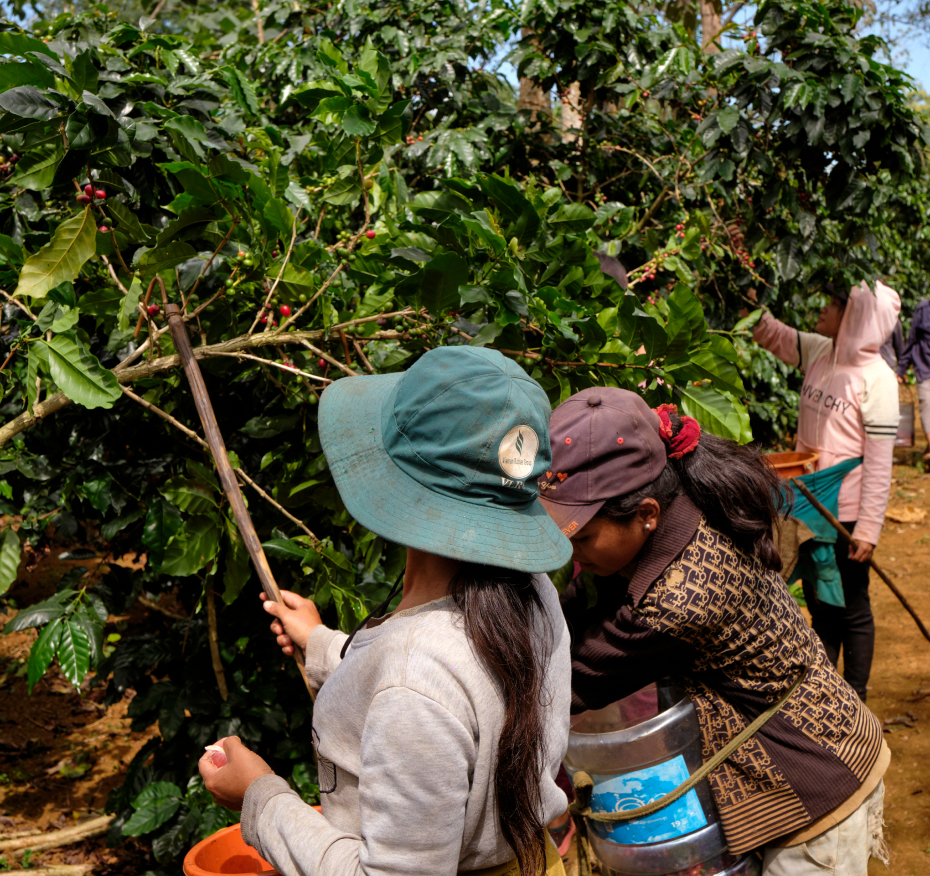COLLECTIVE
ACTION KIT
Actions to realize the right to a safe and healthy working environment in the coffee supply chain
INTRODUCTION
How to use this kit!
The collective action kit aims to promote safe and healthy working conditions for coffee workers worldwide, emphasizing the importance of collective action by a wide range of stakeholders.
This kit will enable you to identify specific actions you can take to improve the safety and health of coffee workers.
The kit will enable you to:
- Raise awareness about OSH
- Scale up good practices
- Spread knowledge materials
- Mobilize collective action
Part 1
Raise awareness about OSH
The coffee sector has a unique and vital role in the global economy. The livelihoods of millions of workers and their families are dependent on it.
To achieve a safe and healthy working environment along the coffee supply chain, stakeholders, including governments, employers’ and workers’ organizations, and private companies, must to work together to promote a preventative safety and health culture.
10 ideas for creative communication activities that any stakeholder can implement
PLEDGE
SOCIAL MEDIA
PODCAST
INTERVIEW
BLOG POST
NETWORK
5K FUN RUN
ART CONTEST
TRELLO
WEBINAR
Part 2
Scale up good practices, mobilize collective action, and spread knowledge materials
To make a real difference to workers in the coffee supply chain, stakeholders must take action, such as formulating OSH policies and programmes at all levels and providing/accessing information, training, and health services. The promotion of freedom of association is necessary to ensure the meaningful involvement of employers’ and workers’ organizations, and ensure equal access to safe and healthy working environments.
Each stakeholder has a unique role to play in improving safety and health for coffee workers. Are you ready to take concrete action for #CoffeePeople throughout the supply chain?
Governments from coffee-producing and coffee-consuming countries
Governments play a pivotal role in both coffee-producing and consuming countries, bearing the responsibility to realize the fundamental principles of safety and health at work. Collaborating with employer and worker organizations, countries can establish national OSH policies, initiatives, and frameworks and foster a culture of preventative safety and health measures.
Employers, employers’ organizations, and business membership organizations (EBMOs)
The private sector has a legal and social obligation to ensure the safety and health of workers. This includes the commitment to partake in tripartite discussions concerning OSH policies, systems, and programmes, as well as providing services like information and training on OSH. It is also good for business, as OSH enhances employee motivation and productivity while attracting new talent.
Workers and workers’ organizations
Workers offer valuable insights into potential safety and health risks and possible solutions. They also advocate for enhanced working conditions and elevated OSH standards. Through dialogue with employers, governments, and other stakeholders, workers’ representatives can extend their support by providing information and help to workers themselves, with an emphasis on upholding their rights and improving working conditions.
Coffee growers (farmers, producers and workers)
In the world of coffee farming and production, it is important that the growers are aware of local, national, and global OSH rules and regulations, including the observation of safety protocols and the use of protective gear. Coffee growers should also have the option to engage in OSH training and education initiatives, provided by their employers, cooperatives, or associations operating across the supply chain.
Development partners active in the coffee supply chain
Development partners can provide technical knowledge and financial support, including expanding existing programmes, creating new projects, and strengthening organizations’ ability to implement and enforce proper safety measures. These partners can also help spread awareness about why workplace safety matters, ensuring that the right rules, plans, and resources are available to make workplaces secure and healthy.
International organizations
By highlighting the importance of establishing safe and healthy work environments, international organizations can enhance OSH while also endorsing sustainability in the coffee sector. International organizations hold a distinctive role in convening stakeholders in the coffee sector to identify and tackle critical OSH challenges. Their contribution may involve knowledge sharing, training initiatives, and other multifaceted endeavors.
TOGETHER
FOR OSH
Discover how you can help
Do your part to make progress towards a safer and healthier coffee supply chain for all. Improving OSH is essential to achieving the Sustainable Development Goals (especially no. 8 and no. 17) and creating a safer and healthier future of shared prosperity for everyone.
Who is it for?
Governments from coffee-producing and coffee-consuming countries; private sector stakeholders (employers, employers’ organizations, and business membership organizations); workers and workers’ organizations; coffee growers (farmers, producers, and workers); development partners active in the coffee supply chain; international organizations
Stay updated with the latest news and updates from the #CoffeePeople campaign
Discover the developments and initiatives driving positive change for coffee workers worldwide.
Get updates in your inbox
Get a curated collection of coffee supply chain content, including the latest news, human-centered stories, relevant events, and practical tips on how to get involved and share your journey.
What should I do next?

Coffee People Pledge
Make a concrete commitment to safeguard workers’ rights and foster sustainable practices in the coffee supply chain.

Social media challenge
Build a global movement that supports the safety and health of coffee growers worldwide.








